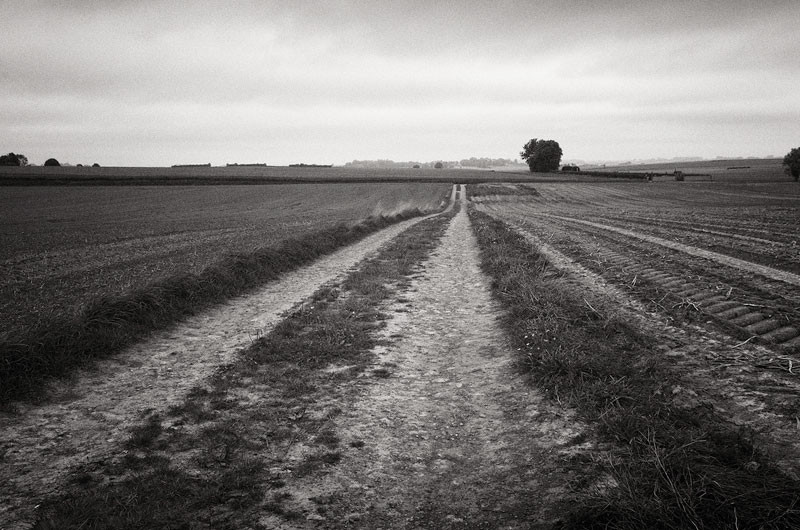
Rainy Trench, Lesboeufs, October 2015
But a Short Time to Live
Our little hour, how swift it flies
When poppies flare and lillies smile;
How soon the fleeting minute dies,
Leaving us but a little while
To dream our dream, to sing our song,
To pick the fruit, to pluck the flower,
The Gods - They do not give us long, -
Our little hour.
Frederick Leslie Coulson, mortally wounded here on 7th October 1916
This aptly-named spot, desolate even now, was infinitely worse in November 1916, when it marked the limit of the advance on the extreme right hand of the British sector. Beyond the right of the frame lies the slope of the Transloy Ridge. Here, in rain sodden, freezing ditches that passed for trenches, the British troops spent the winter of 1916/17, one of the bitterest on record. Prior to this, on October 7th and amongst the drawn-out death-throes of the battle, a series of futile assaults were launched out of the ragged trenches and waterlogged shellholes that ran through this view. Amongst those wounded and brought in was journalist and poet Leslie Coulson. A few weeks before he had written to his father. "If I should fall, do not grieve for me. I shall be one with the wind and the sun and the flowers." He lived long enough to thank his stretcher bearers, and to dictate a final message to his family. He died at a clearing station to the rear a few hours later. He was 27.
But a Short Time to Live
Our little hour, how swift it flies
When poppies flare and lillies smile;
How soon the fleeting minute dies,
Leaving us but a little while
To dream our dream, to sing our song,
To pick the fruit, to pluck the flower,
The Gods - They do not give us long, -
Our little hour.
Frederick Leslie Coulson, mortally wounded here on 7th October 1916

|
